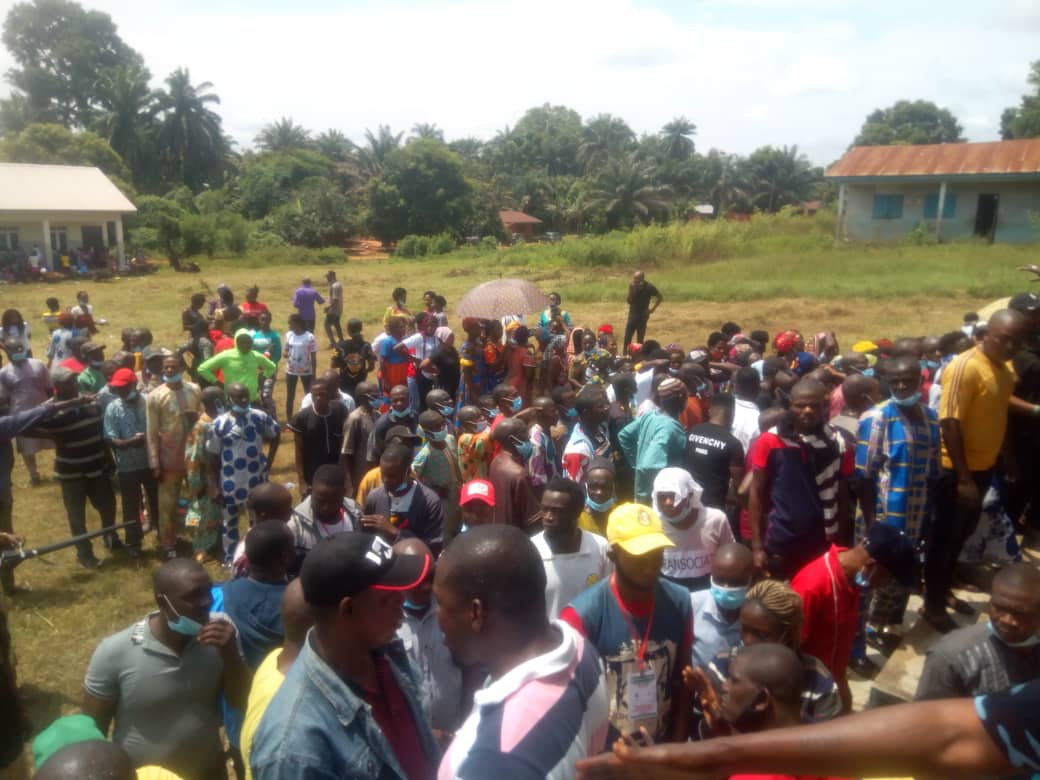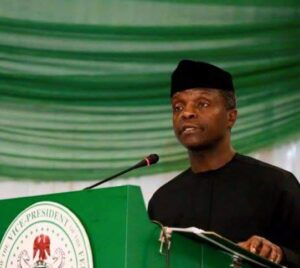In this interview with business reporter Ayodeji Adegboyega, Inibehe Effiong, a lawyer and activist, analyses issues surrounding the ongoing Edo State election and the culture of vote-buying in Nigeria elections. He also speaks on the issue of women representation and how it can be actualised in Nigeria.
Excerpts
PT- In this ongoing Edo State election, we noticed that a lot of electorates were seen flouting the COVID-19 health guidelines. Do you think there was not enough awareness of the guidelines?
Inibehe Effiong: My perception is that most Nigerians have not come to terms with the reality of COVID-19. Secondly, it appears people have basically moved on.
You can clearly see – beyond Edo election – all parts of the country, people have basically stopped using face masks; social distancing is no longer being complied with.
This can also be explained socially in terms of our adaptation to issues of this nature.
I think another contributory factor is that it appears that for most Nigerians, the low fatality rate has also influenced the response and attitude of Nigerians, in the sense that the number of people who have died as a result of this disease is quite low in Nigeria compared to other countries.
When people look around and they don’t see people they know to be a victim of the disease, as far as they are concerned, this is a sickness for a section of the elites.
PT: How can INEC overcome the culture of late arrival of election materials and, in some cases, outright malfunctioning?
Effiong: As far as I am concerned, INEC, as an institution, has not paid real attention to the integrity of our electoral process. It amazes me that election after election, year after year, cycle after cycle, we keep talking about the very same issues.
Because this is one election, an isolated election in one state, in which INEC have deployed not less than three ranking electoral commissioners, in addition to other high-ranking officials of the commission.
One would have expected that INEC would have a seamless and stress-free process in this election -that issues of logistics and organisational challenge challenges would be basically minimised if not totally eliminated.
But, unfortunately, it appears that, again, this election, from some of the reports we are getting from observers and journalists on the field have been flexed by the late arrival of the election materials.
So, my point is that the Commission is either incompetent in terms of their capacities to hold credibly election that is void of these challenges or possibly we are seeing a case of deliberate sabotage.
Because to my mind, Edo is not in the part of the country where people have (a) problem of accessibility. Most parts of Edo State can be easily accessed by road.
So, if you have just one isolated election in the entire country in just one state, why should it be difficult to mobilise the presiding officers and other electoral officials with the required materials to get to the various police stations on time? This is clearly inexcusable, for me.
As a country, (we should) learn to take responsibility and stop making unnecessary excuses for repeated failures of a commission that, time over time, has promised to conduct credible elections.
PT: Vote buying has been reported in this election and of course, in most of the elections conducted in Nigeria. How does this affect the system of government we practise in Nigeria? Do you think we practise democracy at all in Nigeria?
Effiong: Well, this is a very controversial issue – whether we actually have democracy in Nigeria or not. But my personal opinion is that we are basically experimenting. You know, we just have the pretentious attempt to behave in a democratic manner.
Now, vote-buying is a criminal offence under the electoral act. It is an electoral offence that has been criminalised.
But, because but the violators have not been punished over time – candidates and supporters, who indulge in this criminality are aware that this is a country where impunity is encouraged, where reckless disobedience of the law, reckless violation of due process go on unabated, unchallenged – this will continue to happen.
That is why you see people openly distributing money on the day of elections without consequences.
Unfortunately, even the security men, those who are supposed to ensure that laws are obeyed on the day of election, like the police for example – they are also accomplices in the prevalence of vote-buying that we are talking about.
So, I did not expect anything different in the Edo election. The political actors have shown total unwillingness to obey the rules of the game.
PT: So, how do you think we can prevent it?
Effiong: It has to be a multi-faceted approach, there is no straight jacket solution to this.
The citizens have a role to play, because if the electorates are enlightened about their rights and consequences of selling their votes and the fact that their electoral choices have consequences.
That, when you allow certain elements or characters (to) pass through the electoral process and occupy political positions, it has a direct bearing on the country, human capital development and of course, general developments in the country.
So, voters also have a responsibility to checkmate this, because, at the end of the day, you cannot have the case of vote-buying if there is nobody selling votes or nobody offering votes for sale.
We must also continue to engage in civic education, enlighten Nigerians on the need to protect the integrity of their votes.
Now there are also institutional approaches that have to be looked into, for example, we have to seriously consider having either a permanent electoral offences tribunal or court or an ad hoc tribunal that will be constituted along with the election petition tribunal after every election.
We need a special court to prosecute violators of electoral laws in this country. And this should be done in addition to possibly considering having an electoral offences commission, because at the end of the day, we cannot have a serious country with democracy if our electoral process is not deliberately sanitised.
So, going forward, this is a conversation that Nigerians should engage in. Unfortunately, today, it appears there is no political will on the part of the government of the day to seriously address this issue.
Recall that before the 2019 election, the National Assembly had, at least, on three occasions, passed the electoral amendment bill which President Buhari vetoed and refused to sign into law.
Now, over a year after that election, this president and the current National assembly are still playing hide and seek with further reforms of the electoral system in terms of passage of laws. So, I am saying that the political class is not committed to the electoral reforms and that explains some of the things we see during all elections in this country.
PT: We have like 14 political parties competing in Edo State. So far, the media has extensively reported mainly on two of them. Do you think the media is being fair on this matter?
Effiong: It appears to me that people are, to some extent, buying into this propaganda – it is either the Devil or the blue sea for Nigerians, either you support either of these two parties – which is not supposed to be. Because to some of us really, it is basically a distinction, without a difference.
If we look at the way in which the said two parties are run, in terms of their willingness to behave in a democratic manner, in terms of their commitment to internal party democracy, in terms of their respect for the rule of law in this country – it is basically the same thing.
That is why, in (the) Edo election, for example, you see the candidates of the said parties swapped. Unlike what happened in the last election, the candidates were swapped this time.
I don’t think that all augurs well for us as a country.
The media must also take responsibility by ensuring that other political parties are also given the needed support. This is not just an argument of political participation. It has been made a law in this country that no political party or candidate shall be given advantage, that state apparatus shall not be deployed to the benefit or advantage of one candidate or party.
The implication is that, for example, media houses that are owned by the government, they have a statutory responsibility to give equal opportunity to political parties to air manifestoes and also sell their candidates to the electorate.
And the law enforcement agencies also require, under section 100 of the Electoral Act, all state apparatus (are) to ensure that they give equal opportunity to political parties and candidates. So, I am saying that the media also have that same responsibility.
If you look at the Nigerian Media Code of Conduct for election coverage, the media has a responsibility, signed by the NUJ, a representative of media positions, that we will give equal opportunity equal coverage to political parties and candidates.
So, it is unfortunate. This is not supposed to be the case. I am hoping that going forward, the media should also take deliberate steps to ensure that they respect the fact that Nigeria is a multi-party country.
PT: Alright, so lastly, of these 14 parties, we have just two female candidates. What does this say for our gender representation in politics? Are we moving forward on it at all?
Effiong: No, we are not moving forward. And the reason why we’re not moving forward is that the political parties are unwilling to endorse affirmative action. And the parliament has also refused to give (the) affirmative action the necessary legislative support or conditional party.
The easiest way to do this is to have a specific conditional provision or a provision under the electoral act that will impose a duty of political parties to ensure that there is equal representation, not only for women but also for persons with disabilities.
If you look at the Constitution of some of these parties, there is actually a provision for these which they never comply with.
What I’m saying (is) that to achieve that, we will require a conditional provision or a provision under the electoral act that makes it a duty on political parties to ensure that female candidates are given an equal and fair and equitable opportunity to aspire for various elective offices.
Related
Source: www.premiumtimesng.com





